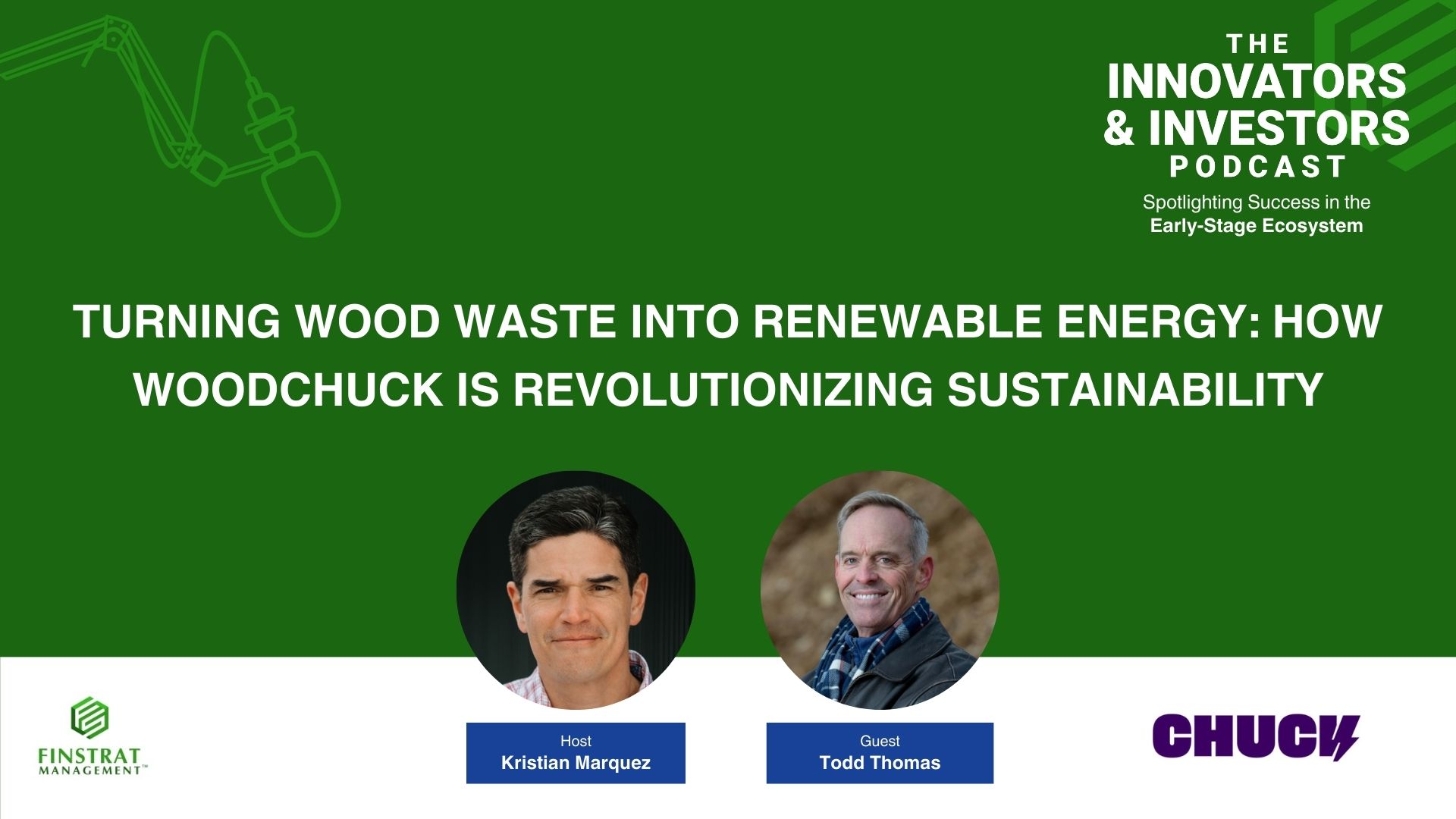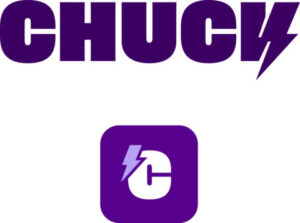Turning Wood Waste into Renewable Energy: How Woodchuck is Revolutionizing Sustainability with Todd Thomas
June 6, 2025 | 37 MIN

Summary
This Innovators & Investors Podcast episode features an in-depth conversation between Kristian Marquez and Todd Thomas, founder and CEO of Woodchuck and bestselling author of Unleashing Abundant Energy. Todd shares the journey of founding Woodchuck, a company focused on transforming wood waste from construction and manufacturing industries into renewable biomass energy. The conversation clearly conveys how Woodchuck tackles two significant global issues: reducing waste sent to landfills and addressing the increasing demand for clean energy, especially in Michigan where traditional biomass energy production is limited by feedstock scarcity.
Todd explains the innovative model Woodchuck employs—partnering with construction and manufacturing firms to divert wood waste such as lumber scraps and pallets from landfills and converting it into a clean, renewable energy source. The company uses an AI-driven platform, woodchuck.ai, to track waste diversion, usage, and energy production, providing validated reporting that appeals to large enterprises like Amazon, Ford, Ikea, GM, and Starbucks. These companies are under rising pressure to reduce costs, minimize landfill contributions, and achieve sustainability goals.
The discussion touches upon Woodchuck’s rapid growth since its launch 18 months ago, including major projects such as diverting 95% to 99% of wood waste for an Amazon distribution center in Detroit. Todd details the company’s sales approach, prioritizing large construction and manufacturing firms serving major corporations due to their greater need and willingness to engage in detailed sustainability reporting. He also addresses challenges related to dealing with slower enterprise sales cycles and regulatory complexities, emphasizing the importance of execution, focus, and effective capital management in startups.
Todd’s entrepreneurial background reveals a long-standing focus on AI-driven efficiency solutions in manufacturing and construction, which laid the foundation for Woodchuck’s AI-based waste diversion platform. The conversation also delves into his book, Unleashing Abundant Energy, which presents a realistic and comprehensive view of the future energy landscape. Todd argues there is no “silver bullet” for meeting humanity’s growing energy needs by 2050—instead, a diversified portfolio of energy sources, including renewables, nuclear, and fossil fuels, will be necessary, combined with improvements in infrastructure and storage.
Finally, Todd shares candid advice for entrepreneurs about the realities of startup life, emphasizing the necessity of continual fundraising, staying laser-focused on solving a real problem rather than selling a cool technology, and understanding the difficulties of sales in the enterprise space. He concludes with personal reflections on work, job security, and the benefits of entrepreneurial independence.
Highlights
- Woodchuck transforms wood waste from construction and manufacturing into clean, renewable biomass energy.
- The company addresses two major global issues: reducing landfill waste and meeting rising energy demands.
- Woodchuck’s AI platform enables detailed tracking and reporting of waste diversion and energy production, attracting large enterprise clients like Amazon and Ford.
- The startup grew rapidly in 18 months, with key pilot projects achieving wood diversion rates up to 99%.
- Founder Todd Thomas stresses the importance of execution, focus, and cash flow management for startup success.
- Todd’s book Unleashing Abundant Energy argues that no single energy source can meet future demands—diversified energy strategies are essential.
- Todd advocates for entrepreneurial control over job security and stresses that “finding a job you love” doesn’t mean work isn’t hard.
Key Insights
- Wood waste is a largely untapped energy resource: Todd highlights that 30-40% of U.S. landfill wood could be repurposed as biomass feedstock. Construction waste, lumber offcuts, and discarded wood pallets represent high-energy, dry biomass ideal for clean energy production. This sector has traditionally been overlooked but offers huge potential to both reduce landfill costs and increase renewable energy supply.
- AI enhances operational efficiency and transparency: Woodchuck’s proprietary woodchuck.ai platform enables precise tracking of diverted material streams, energy output, and environmental impact. This data-centric approach fulfills the demands of large enterprises that need validated reporting to meet regulatory and sustainability requirements. This shows how AI is becoming critical beyond product innovation—supporting operational scalability and customer trust.
- Scaling clean energy solutions requires understanding complex ecosystems: The case of North Star Clean Energy illuminates how energy providers depend not only on technology but also the availability of specific biomass feedstock to generate renewable electricity. Woodchuck fills this supply gap, showing how startups can find niche but critical entry points to accelerate the clean energy transition, especially at a regional level.
- Sales cycles and operational scaling in enterprise sustainability are slow but critical: Despite product-market fit and proven results, Woodchuck faces long sales and approval timelines due to large organizations’ procurement processes and regulatory requirements (such as multi-jurisdictional land approvals for facilities). This underscores the tension startups face between internal speed and external market pace, requiring patience and capital endurance.
- Energy demand growth is multifaceted and accelerating: Todd emphasizes that modern energy demand spurs from not just population growth but technological expansion, notably AI, cryptocurrency mining, and electric vehicle electrification. The resulting infrastructure strain, such as insufficient EV charging networks, further complicates meeting energy needs sustainably. This reveals the systemic nature of energy challenges spanning technology, economics, and infrastructure.
- No silver bullet solution exists for future energy needs: Based on data projections, Todd argues that even drastically increasing renewable capacity and nuclear power won’t fully meet projected 2050 energy demand. Fossil fuels will continue to play a significant role, at least in the medium term, requiring candid discussions about cost, carbon emissions, and energy security to build realistic, diversified energy policies.
- Entrepreneurship demands relentless execution and cash management: Todd shares that beyond vision and innovation, the biggest challenge for startups is consistent execution, particularly around navigating long sales cycles, managing limited resources, and continuous fundraising. He stresses startups must monitor cash flow meticulously and avoid over-expansion. This pragmatic focus on operational discipline is pivotal for lasting startup success.
- Personal reflections on work emphasize value over comfort: Todd dispels the myth that loving your job means work isn’t hard. Instead, he encourages finding meaningful work where you can add value while accepting that work is inherently challenging. Additionally, he highlights the trade-offs between job security in corporations and sovereignty in entrepreneurship, advocating the latter for those seeking control over their destiny.
Conclusion
This episode provides a rich exploration of how innovative renewable energy solutions can arise from unexpected waste streams, powered by a pragmatic AI-driven business model. Todd Thomas’s insights not only highlight Woodchuck’s mission but also frame broader energy industry challenges and entrepreneurial realities. His combination of technical expertise, operational savvy, and candid reflections makes this discussion highly valuable for innovators, investors, and sustainability advocates alike.
Stay up-to-date with Todd Thomas and his work with Woodchuck.
Follow the show on your podcast channel of choice or listen below:




